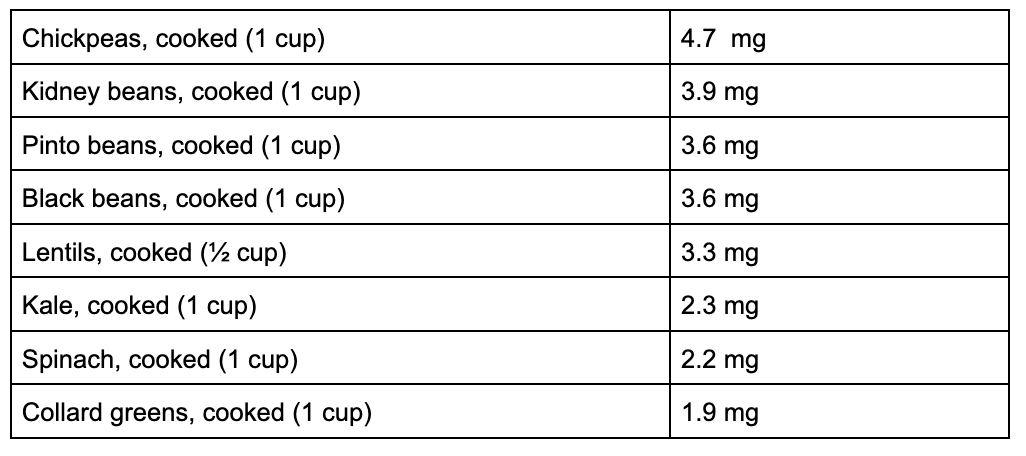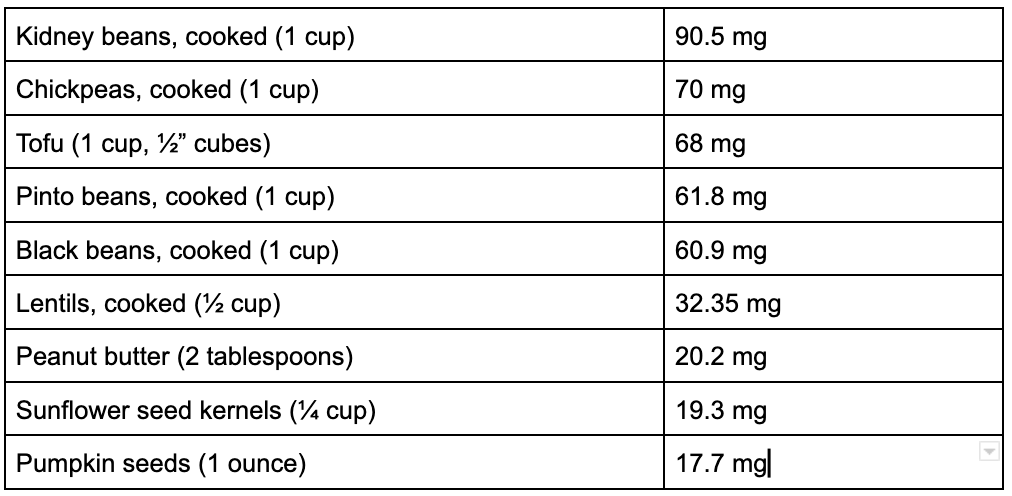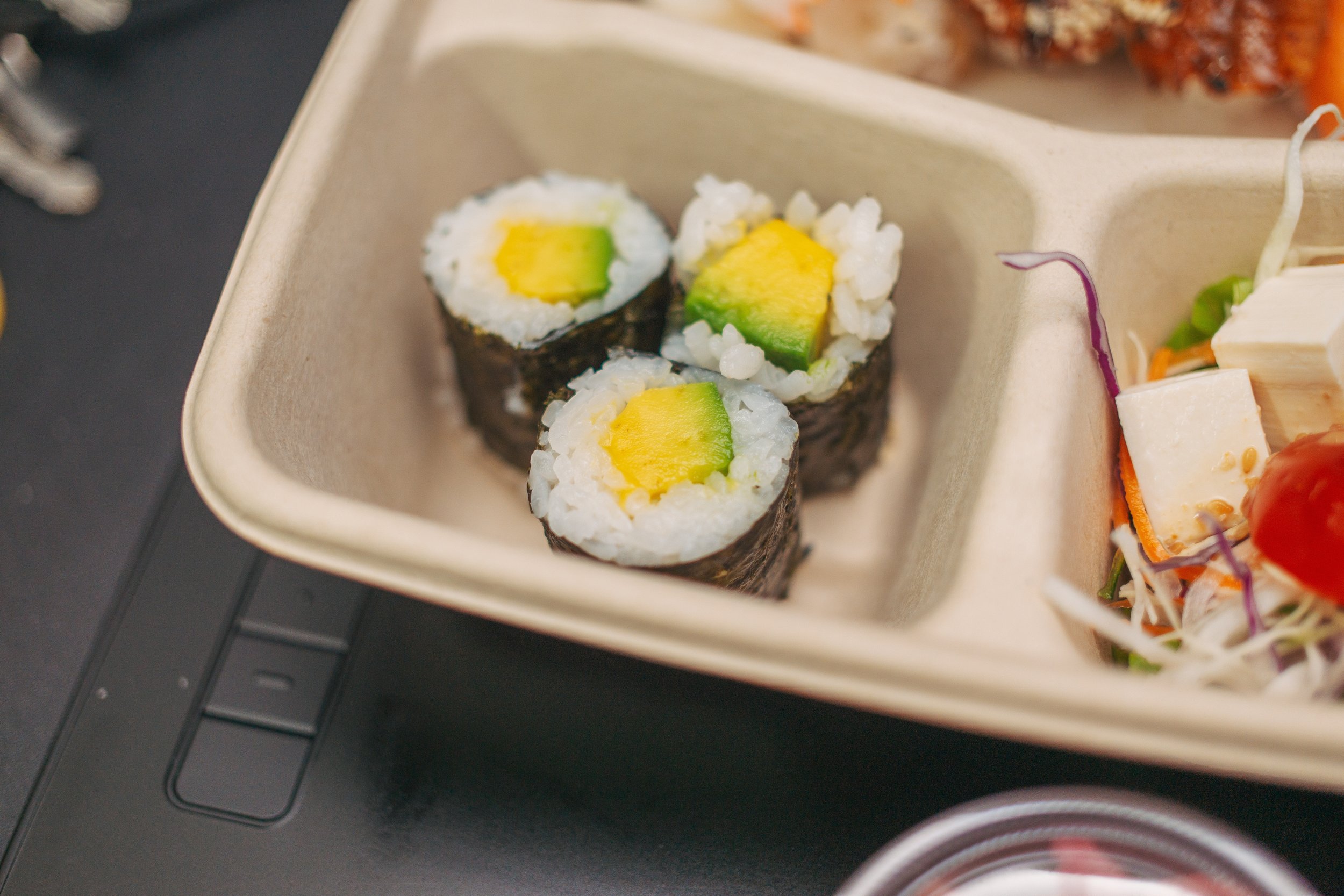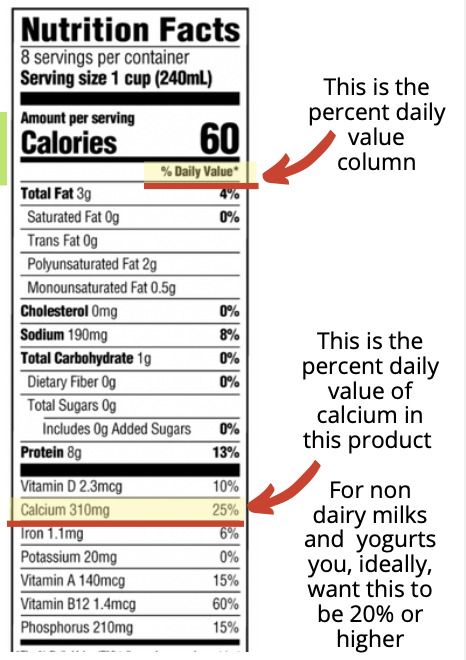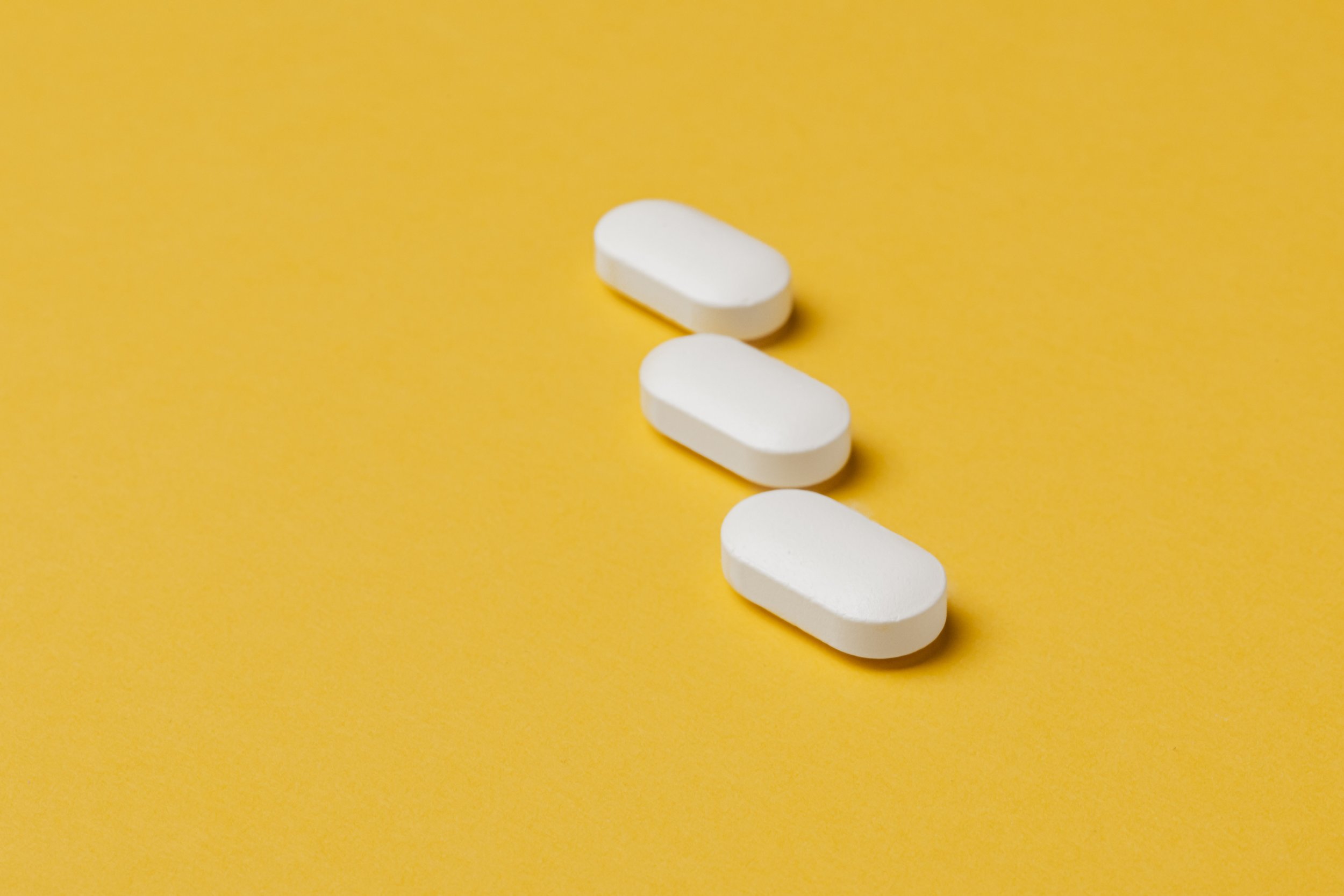Is a vegan diet safe for pregnancy? A dietitian explains it all (very detailed!)
Written by Delilah Bisase, RD
As a vegan dietitian and prenatal nutrition expert, it’s my passion to support clients navigating a plant based pregnancy. Rest assured that you can be vegan and pregnant, and following a plant based diet while pregnant is safe and doable.
Just as you would with any diet, vegan or not, you need to follow a well balanced, properly planned diet in order to ensure you’re getting the proper amounts needed to support your pregnancy.
“When it comes to being vegan and pregnant, these are the nutrients you want to pay special attention to: iron, omega-3 fats (especially DHA), vitamin B12, choline, zinc, iodine, vitamin A, protein, and calcium. ”
I’m going to show you how you can get sufficient amounts of each nutrient to support a healthy vegan pregnancy for you and your baby.
Heads up, you will absolutely need to take supplements in addition to eating whole foods to get all of these nutrients, with the exception of calcium. For that reason, it’s super important to take a high quality prenatal vitamin.
Also, the numbers [in brackets like this] refer to the sources I’m citing for each factoid.
Get comfy and get ready to dive in.
Iron
The issue of iron deficiency anemia during pregnancy is not unique to vegans, in fact in the vast majority of countries around the world iron deficiency anemia is found in more than 20% of pregnancies [1], and it’s probably because many women already had inadequate iron stores when they got pregnant [2].
A pregnant body needs 50% more iron than a non-pregnant body. That huge increase in demand coupled with a poor diet (vegan or not) is what lays the foundation for developing iron deficiency during pregnancy. To meet your daily iron needs, you’re going to need to get it from both a supplement and whole food sources.
Iron in supplements
Choose a prenatal vitamin that provides 27 mg of iron, or at least close to it. This amount is 100% of your daily needs during pregnancy. Look out for the words “iron bisglycinate”, “ferrous bisglycinate”, “iron chelate”, or “ferrous chelate” because that is the gentle, non-constipating form of iron. The most common form of iron is “ferrous sulfate” and it can be very constipating and rough on the digestive system for many people.
It might also be worthwhile taking an additional iron supplement every other day during the 2nd and 3rd trimesters since those are the two trimesters that put the most demand on your body’s iron stores. I say every other day because there is some research [3] that suggests taking high dose iron supplements every other day promotes better absorption than taking it daily. This decision would need to be made in conjunction with your doctor so that they can first check your levels and provide guidance on dosage. Most supplements provide 20-25 mg per day, but keep in mind that the daily limit for iron intake is 45 mg per day. However, if your iron stores are low, a higher intake may be needed for repletion.
Iron in whole foods
In addition to the daily prenatal vitamin, be sure to include these foods that are rich in iron. Plant based sources of iron are primarily beans, lentils, and cooked dark green leafy vegetables. Cooked leafy greens have significantly more iron than raw leafy greens.
The same goes for calcium too. Another tip is to eat vitamin C rich foods alongside these iron rich foods in order to improve the absorption. Also it’s very important to soak and/or sprout beans and lentils prior to cooking, as this will reduce the phytates and further improve absorption.
I also recommend investing in a cast iron pan. Depending on the type of food you’re cooking, using a cast iron pan can increase the iron content of your food between 5-29 fold! Plus, cast iron pans last forever; they’re such a good investment.
Here are some plant based sources of iron
Omega-3 fats
Taking an omega-3 supplement is required for both pregnant and non-pregnant vegans. Omega-3s become really important in the 3rd trimester because they're a key nutrient important for the development of your baby’s brain, and in fact 60% of a baby’s brain is DHA omega-3 fat.
Chia seeds, hemp hearts (aka hemp seeds), walnuts, and flaxseeds have all gained popularity as vegan sources of omega-3 fats. And they do contain significant amounts of omega 3 fats, however in the form of ALA (alpha-linolenic acid). Our body converts very small amounts, less than 15% [4], of this ALA into the other forms EPA (eicosapentaenoic acid) and DHA (docosahexaenoic acid) which are the forms that are crucial for a healthy pregnancy. It’s still a good idea to continue eating chia, hemp, and walnuts throughout pregnancy because they are still very nutrient dense foods nonetheless.
Keep flaxseed to a minimum during pregnancy
A study [5] found that flaxseed oil has been found to increase the risk of premature birth 4-fold. These effects were not associated with ground flaxseed or whole flaxseed, so these foods are considered to be safer, however, more research is needed. Occasionally having some ground flaxseed in a smoothie or cooked into muffins is fine. I recommend choosing chia seeds over flaxseeds because chia seeds are a nutritional powerhouse in terms of a plant based pregnancy. Aside from omega-3 fats chia seeds also contain fiber, iron, magnesium, zinc, and protein.
How much omega-3 to take during pregnancy
During pregnancy your body needs 650 mg per day of omega-3 fats, with 300 mg of that being DHA. FYI, that’s 150 mg more than what you need before pregnancy.
Choose an algae based supplement that provides this amount. To keep things consolidated, I recommend choosing an omega-3 supplement that contains a combination of omega-3, vitamin D3, and vitamin K2.
Most prenatal vitamins don’t have enough vitamin D to support needs throughout pregnancy, so additional supplementation is highly recommended. So you might as well combine it with your omega-3 supplement.
Vitamin B12
Just like omega-3s, supplementing with vitamin B12 is required for both pregnant and non-pregnant vegans. Your baby needs this to make its DNA and red blood cells, among many other important nervous system functions. Plus, inadequate B12 during pregnancy has been linked to a higher likelihood of developing postpartum depression, especially if you have a history of mental illness [6].
B12 supplement quality
Choose a prenatal vitamin that provides at least 5-10 mcg of vitamin B12. Many prenatal supplements contain higher amounts, and that’s okay. I also highly recommend choosing B12 that is in the methylated (aka “active”) form. To spot this out look for the words “methylcobalamin” or “adenosylcobalamin”, these forms are better retained in comparison to “cyanocobalamin”.
Research also suggests that methylcobalamin works best when combined with adenosylcobalamin [7]. From my personal shopping experience I mostly see prenatal vitamins that contain only methylcobalamin, but there are a few that contain both. However, it’s not the end of the world if all you can find is one that only has methylcobalamin.
Choline
Similar to vitamin B12 and folate, choline also has a significant influence on your baby’s brain and spinal cord development. It also supports mama’s liver function and placental function.
Eggs are not the only source of choline. It’s also found in a wide variety of plant based foods, particularly beans.
Since the concentration of choline is lower in plant based foods, supplementation is needed during pregnancy in addition to what you get from eating food. You need 450 mg per day of choline during pregnancy.
Here are some plant based sources of choline
Source: USDA Food Data Central
Zinc
Zinc becomes particularly important during the first and third trimesters to support immune function. However, it supports other important functions throughout the whole pregnancy, such as the baby’s protein synthesis.
The daily needs for zinc during pregnancy are 11 mg per day, however as a pregnant vegan you want to set your daily intake higher at 16.5 mg per day to account for the phytates that can interfere with absorption. I recommend to choose a prenatal vitamin that contains a minimum of 11 mg, and then get the remaining amount of zinc via whole foods.
Here are some plant based sources of zinc
Source: USDA Food Data Central
Iodine
Iodine is essential for proper thyroid function and your baby will be sourcing all of its thyroid hormones from you for the first approximately 16 weeks until it’s able to start producing its own. In terms of food, iodine is most highly concentrated in seafood, seaweeds, dairy, and iodized salt.
The amount of iodine in seaweed varies widely and it’s difficult to accurately measure exactly how much you’re taking in because it’s never listed on the nutrition label nor the USDA database when you search those foods. As counterintuitive as it sounds, sea salt contains almost zero iodine, but iodized salt contains 76 mcg per ¼ teaspoon [8], which is a little over ⅓ of your daily needs in pregnancy. Now, salt is still salt so be mindful to consume it in moderation. Don’t be shy to reach for the iodized salt when cooking.
Your daily needs of iodine during pregnancy is 220 mcg per day. Iodine is a must in your prenatal supplement, and choose one that has at least 150 mcg. If it has the full 220 mcg then that’s even better but I most often see it in the 150 mcg amount. In addition to your prenatal supplement, also regularly consume plant based sources of iodine which are seaweed (ex: seaweed snack sheets) and sea moss (ex: sea moss gel).
Vitamin A
Firstly, we need to understand the two different types of vitamin A. There is pro-vitamin A (aka beta carotene) and there is preformed vitamin A (aka actual vitamin A). Plant based sources contain only beta carotene, which your body converts into preformed vitamin A. However, the amount that gets converted can vary widely depending on the food [9].
Your body needs the preformed vitamin A for an endless list of essential functions throughout pregnancy including the development of your baby’s lungs, kidneys, and facial features among other things. Vegan or not, the majority of pregnant people don’t consume enough vitamin A. This nutrient is important throughout the whole pregnancy, but particularly the first trimester when the baby’s facial features are being developed.
For quite a while the messaging around vitamin A supplementation during pregnancy has been to avoid it like the plague because high levels of this vitamin can be toxic. That is true, however; it’s high levels of synthetic vitamin A that we need to be cautious about, not so much the whole food form. For people who eat animal products, in particular beef liver and egg yolks, supplementation with synthetic vitamin A is generally not recommended out of caution to not go overboard. Hence, you typically only see beta-carotene on most prenatal supplements.
But when it comes to a vegan pregnancy a small amount of synthetic vitamin A actually is beneficial because we vegans do not eat liver, eggs, or any of the animal based foods where you find preformed vitamin A. You want to choose a prenatal vitamin that contains a combo of both beta carotene and synthetic vitamin A, which will be written as retinyl palmitate, retinol palmitate, vitamin A palmitate, or retinyl acetate. Your body needs 770 mcg RAE of vitamin A per day during pregnancy, and your supplement should not exceed 3,000 mcg RAE of vitamin A.
Still continue to eat whole foods rich in beta-carotene, because it is an antioxidant that supports both your skin health and immune health. Foods rich in beta carotene include sweet potatoes, butternut squash, acorn squash, red yellow and orange bell peppers, persimmons, and of course carrots.
Protein
Protein needs increase significantly during pregnancy, and it continues to increase as the pregnancy progresses. A very general rule of thumb would be to aim for approximately 80 grams per day in the first half of the pregnancy and about 100 grams per day in the second half. Research has also found the below guidelines suitable for calculating protein needs during pregnancy [10,11]. By the way, what’s listed below is much higher than the USDA recommended amount of 0.88-1.1 g/kg.
Calculating protein needs
At less than 20 weeks pregnant, the amount is 1.22 grams per kilogram of body weight
Example: 150 lb is 68 kg
68 x 1.22 = 83 g
At greater than 31 weeks pregnant, the amount is 1.52 grams per kilogram of body weight
Example: 150 lb is 68 kg
68 x1.52=103 g
To reach this amount you'll need to incorporate a daily vegan protein powder. Choose one that provides 20 grams of protein per serving. There are some out there that have 15 g per serving, and that can work too, just be mindful to consume more whole food protein sources.
As the pregnancy progresses it might get difficult to consume larger servings of beans and lentils due to the high fiber content and potential for indigestion, keeping in mind that heartburn is a common symptom experienced during pregnancy. Because of this, it may be more convenient and comfortable to include a plant based protein powder in your daily routine.
Glycine
Glycine is an amino acid. It’s considered conditionally essential because your body is normally able to create sufficient amounts on it’s own, unless it’s under certain conditions that prevent it’s ability to produce enough. Pregnancy happens to be one of those conditions, because the needs for this amino acid are known to increase as the pregnancy progresses. Glycine is needed for the synthesis of your baby’s DNA and it’s collagen.
The daily needs for glycine are 2 grams per day [13]. It’s not a nutrient you can easily find a lot of information about regarding food sources of it, but per the USDA database here are some plant based foods I’ve been able to find the glycine amounts for per serving. A combination of these foods can amount to 2 g.
1 cup of cooked lentils has 0.727 g
1 cup of cooked black beans has 0.586 g
1oz pumpkin seeds has 0.516 g
1 cup of cooked chickpeas has 0.494 g
2 tablespoons of peanut butter has 0.454 g
1 tablespoon of spirulina powder has 0.217 g
Calcium
The interesting thing about calcium is that the needs don’t increase during pregnancy, and actually during pregnancy the body becomes more efficient at absorbing calcium. However, that’s no reason to not pay attention to your calcium rich foods. Contrary to popular belief, you don’t need to eat dairy to get calcium, you can find it in plants as well. You’re going to find it primarily in your cooked dark green leafy vegetables, fortified non dairy milk, and non dairy yogurt.
Source: USDA Food Data Central
Not all non-dairy milks and yogurts are created equal, so we can’t just assume that each one is a good source of calcium. In order to spot a non-dairy milk or yogurt that is a good source of calcium you want to look at the percent daily value column (far right column) and choose one that is 20% or higher .
Some prenatal vitamins contain calcium while others don’t. If your whole food intake of calcium is low then it would be a good idea to prioritize a prenatal pill that contains calcium. However, if you can see yourself regularly eating calcium rich foods, then a prenatal pill with calcium may not be crucial.
Because calcium and iron compete for absorption it would be ideal to have a prenatal that contains calcium only, and then take an iron supplement separately. Or to have a prenatal that contains iron without calcium. However, more often than not most prenatal pills contain both iron and calcium together.
Vitamin D3 and Vitamin K2
Vitamin D is a nutrient that I would recommend supplementing with during pregnancy whether you’re vegan or not. The amount of vitamin D in prenatal vitamins is not enough to sustain your needs throughout pregnancy. The current guideline for vitamin D needs during pregnancy (600 IU per day) has also been found to not be sufficient enough to support vitamin D needs throughout pregnancy. An interesting study found that pregnant people do much better with a high dose of the vitamin, between 2000-4000 IU1 [3], and that amount was not been found to be harmful to health. Additionally, adequate vitamin D has been associated with a reduced risk for developing gestational diabetes.
Vitamin K2 is found in both animals and plants, however the primary plant based source isn’t commonly consumed among Americans. Vitamin K2 is found in fermented foods, and in particular natto (a type of fermented soybean commonly consumed in Japan) is highly concentrated in it. Vitamin K2 is also not found in most prenatal vitamins, which is quite saddening because it’s such an important nutrient.
Vitamin K2 and vitamin D3 have a synergistic relationship, and the presence of vitamin K2 directs the calcium to where it’s supposed to be, and that’s in the bones and not the soft tissues like the placenta. Taking the two combined can help prevent placental calcification, which is also known as premature aging of the placenta.
K1 (which is abundant in leafy greens) does not cross the placenta efficiently, however K2 does. And this becomes very important during the third trimester when the baby starts taking in a lot of vitamin K2 as its skeletal system continues developing.
The best guidance would be to take a combined vitamin D3 and K2 supplement in addition to your prenatal vitamin.
But what about soy?
As vilified as soy is, it doesn’t need to be completely avoided during pregnancy. Interestingly, a study of 224 pregnant Chinese women found that consuming less than 40 g of soy per day was associated with an increased risk for developing gestational diabetes [12]. The authors of that study mentioned that there have been other studies with similar findings as well. It seems that it’s not just soy alone that reduces the risk of gestational diabetes, but simply consuming more beans may be what is creating the positive health benefits. However, the exact mechanism of how soy can lead to a reduced risk for gestational diabetes still remains unclear.
When you choose soy, I recommend prioritizing whole food forms such as tempeh and tofu, and keeping the ultra processed forms to a minimum, such as isolated soy protein powder and soy based imitation meats. So when it comes to choosing a protein powder, I’d recommend going with pea protein that is combined with another protein such as hemp, pumpkin, or rice. Keep in mind that no single plant based protein should make up the majority of your protein intake. It’s very important to eat a wide variety of plant based protein.
So what prenatal pill should you take?
At the time of writing this, the best option I’m seeing out there for the plant based pregnant folks is Mama bird prenatal muli+. It doesn’t contain vitamin K2, so you’d need to supplement that (recommend to find a combined D3+K2+omega-3 supplement). It has a fairly low amount of choline, so you’d likely need to supplement that separately as well. And the iron content is only 18mg (daily needs are 27 mg) so you may have to take an additional supplement and/or be very cognizant of consuming adequate amounts through whole foods. By the way, I have absolutely no affiliation or promotional contract with this brand.
Ok, and now what?
Personalized nutrition support is so key during pregnancy. If you’re curious and want to learn more about how I could support you during your pregnancy, don’t hesitate to contact me. I invite you to set up a free 15 minute phone call with me so that we can get started chatting, you can book that call here
However, I understand that working one-on-one with a dietitian may not be what each person is looking for at the moment or it may not be accessible. If you liked this blog post and want to learn more, I recommend checking out my Plant Based Prenatal Nutrition & Fitness e-book. I go into more detail, share a 1-day sample menu, and general fitness guidance.
Sources
1. Iron Deficiency Anemia in Pregnancy: Novel Approaches for an Old Problem
2. Iron deficiency in pregnancy
4. Omega-3 Fatty Acids: Fact Sheet for Health Professionals
5. Pregnant women consuming flaxseed oil have high risk of premature birth, study finds
8. Iodine: Fact Sheet for Health Professionals
9. Bioconversion of dietary provitamin A carotenoids to vitamin A in humans
11. Protein and Amino Acid Requirements during Pregnancy
13. Multifarious Beneficial Effect of Nonessential Amino Acid, Glycine: A Review




